Handloading the .45-60 WCF
other By: Brian Pearce | January, 26
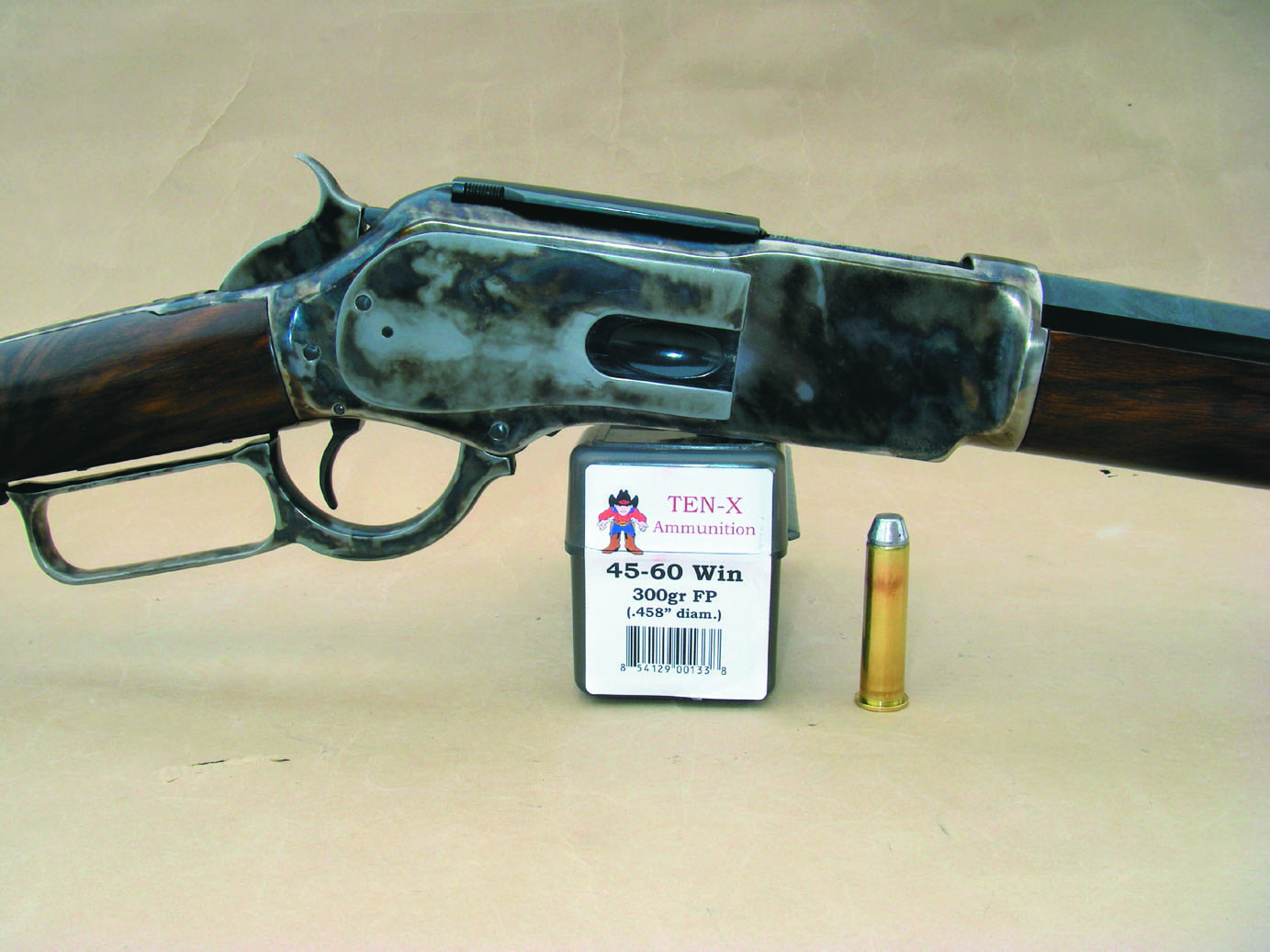
The .45-60 WCF was first offered in 1879 and chambered in the Winchester Model 1876 rifle, which was essentially a larger
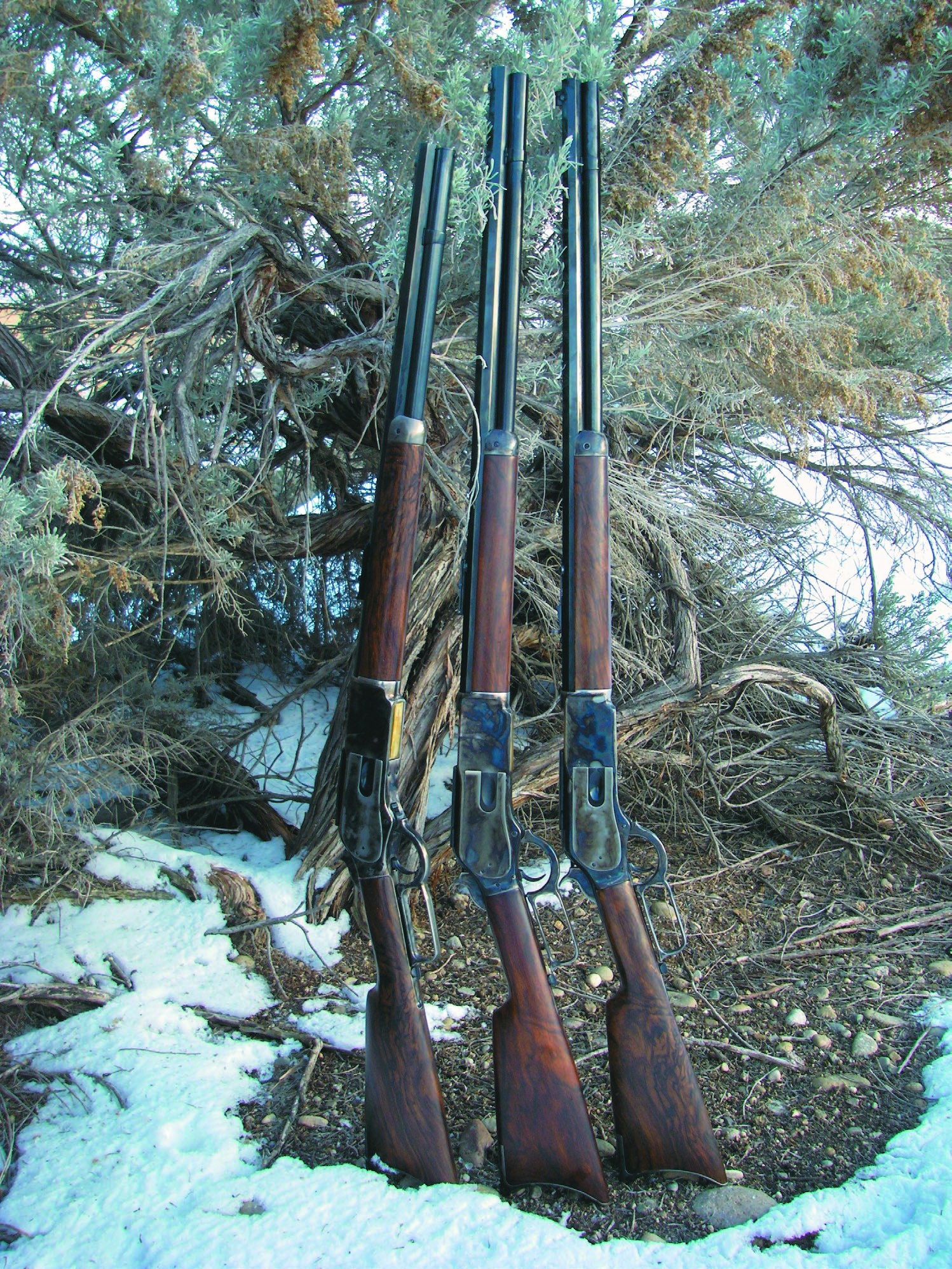
In the past couple of years, Uberti (imported by Cimarron Firearms and Taylor’s and Company) and Chaparral-Repeating Arms (imported by Charter 2000) have been offering replicas of the Winchester Model 1876 and are available in the four original calibers, including .40-60, .45-60, .45-75 and .50-95 WCFs. These guns are crafted of modern steels and are suitable for loads containing smokeless powders. It is not recommended to use accompanying smokeless data (with the exception of IMR Trail Boss and Hodgdon Triple Seven powders) in original Winchester Model 1876 rifles.
As of this writing, TEN-X Ammunition is the only company offering factory loads for the .45-60 WCF. A sampling of the smokeless loads was tried in the 22-inch barrel of the Chaparral-Repeating Arms rifle, which clocked 1,367 fps.
There are no SAAMI specifications for the .45-60 WCF cartridge, but like many black-powder cartridges from this era, 28,000 CUP is considered maximum. While no pressure barrel was available, it is believed that no loads exceeded 21,000 CUP, which is way below the destruction limits of the imported Model 1876 rifles.
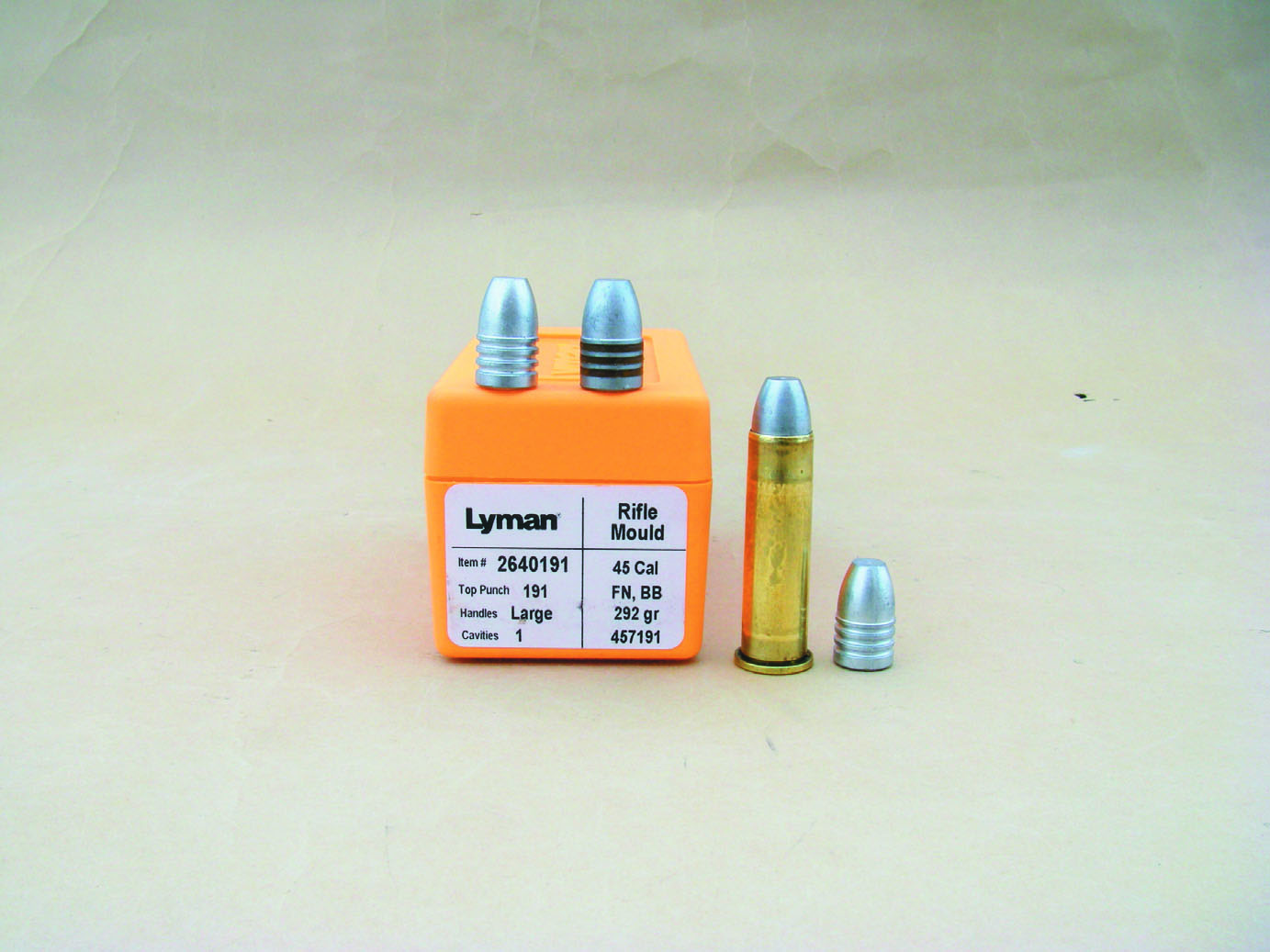
The groove diameter of the .45-60 WCF measured .457 inch, and in an effort to tighten the bullet to case fit and keep them in
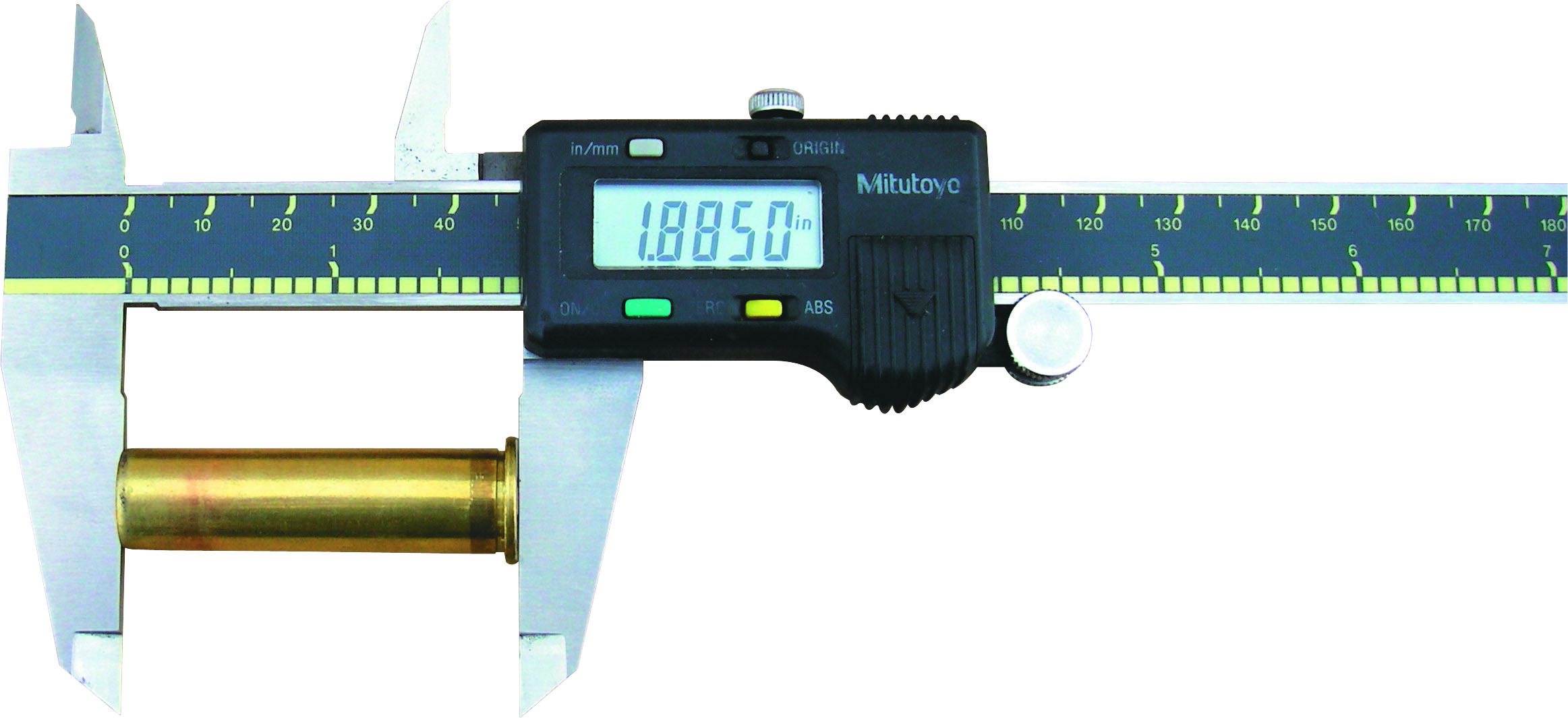
One option to cure the above problem includes using Hodgdon Triple Seven FFg (an excellent black-powder substitute with less corrosion) or IMR Trail Boss (a modern bulky smokeless powder designed for this application). Both powders can be loaded to 100 percent case capacity to support the base of the bullet.
When loading smokeless powders that are less than 100 percent capacity,
another option includes trimming cases to 1.81 inches, then seating the Lyman 457191 bullet to the upper lube groove and using it as a crimping groove. In this fashion the overall cartridge length remains effectively the same at 2.250 inches, which allows cartridges to function reliably and the bullets to positively stay in
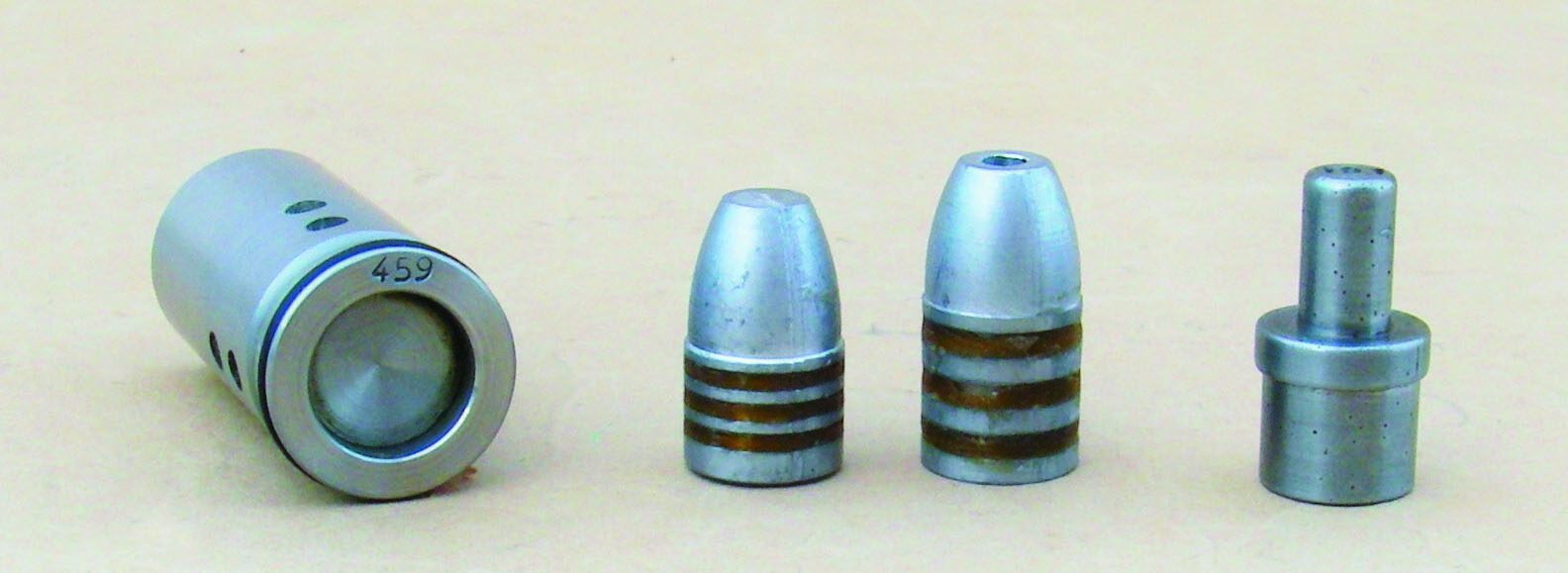
Another cast bullet that gave good results is Lyman mould 457122, which is a 330-grain hollowpoint. This bullet is rather long for the .45-60 case, and some die sets might not properly size the case to assure that the base of the bullet is sealed against the case wall. (Keep in mind that this case does have some slight taper and
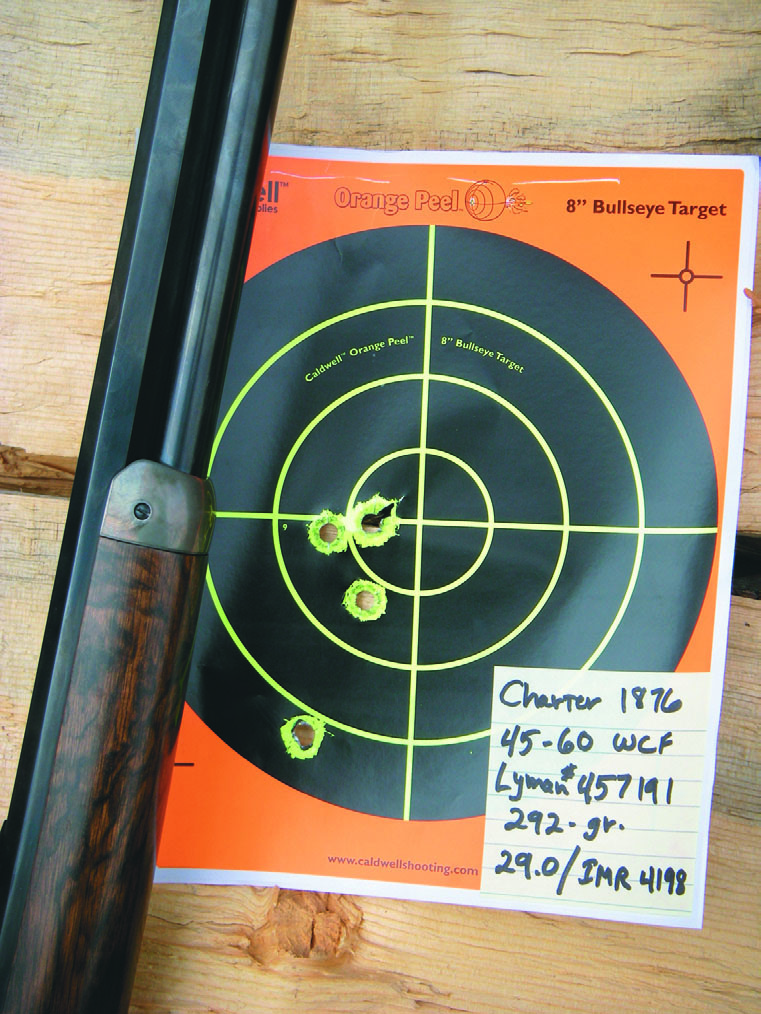
Most loads performed well, as they were accurate and produced low extreme spreads, but IMR-4198 gave especially good results with each of the bullets used. For instance 29.0 grains drove the 292-grain cast bullet 1,366 fps, gave low extreme spreads and was accurate. The same powder charge propelled the 300- grain Sierra bullet 1,276 fps while achieving similar accuracy. Another good powder was Accurate Arms 5744, with 26.0 grains shooting the 330-grain Lyman hollowpoint bullet 1,284 fps, producing similar groups as the above loads.
The .45-60 WCF is a practical choice for handloaders, as cases are easily created by trimming .45-70 brass, or commercial versions are readily available through TEN-X Ammunition. In developing dozens of loads, I found it easy to develop accurate and consistent ammunition. And it offers enough punch to hunt any game in North America.

